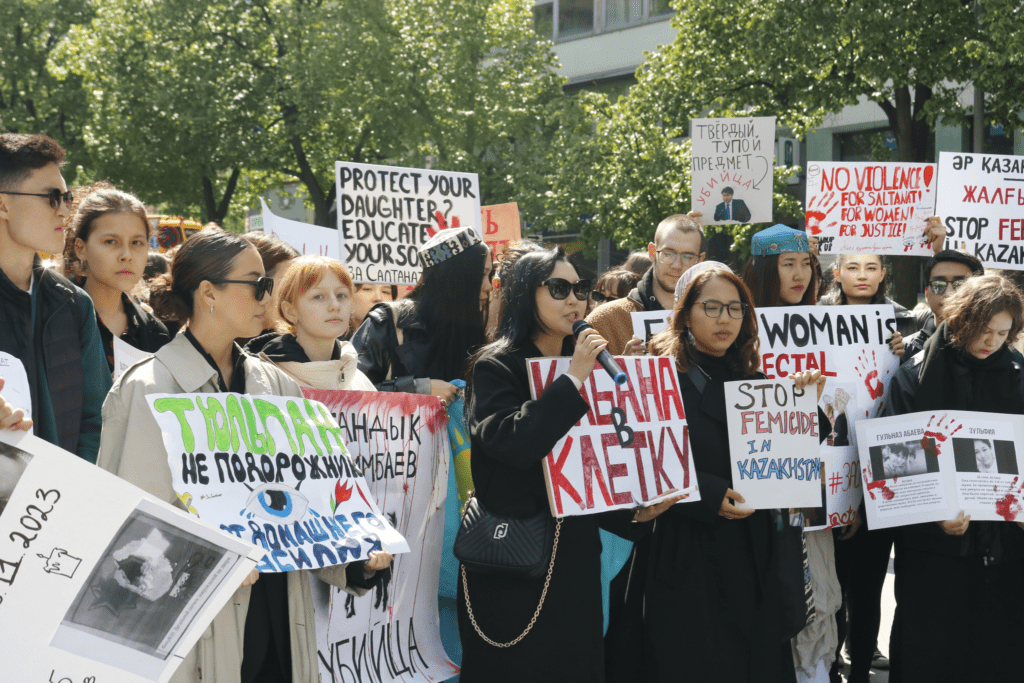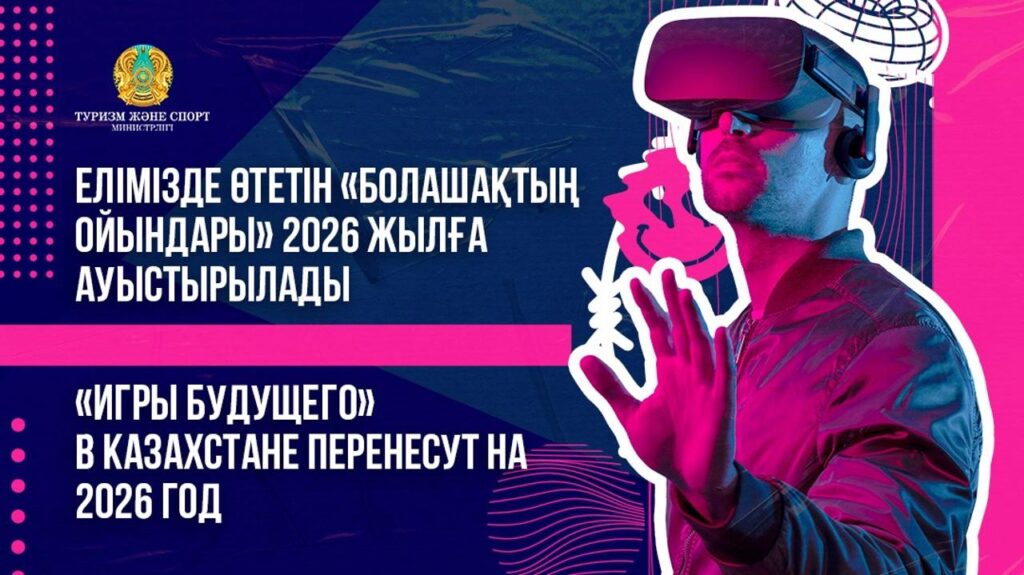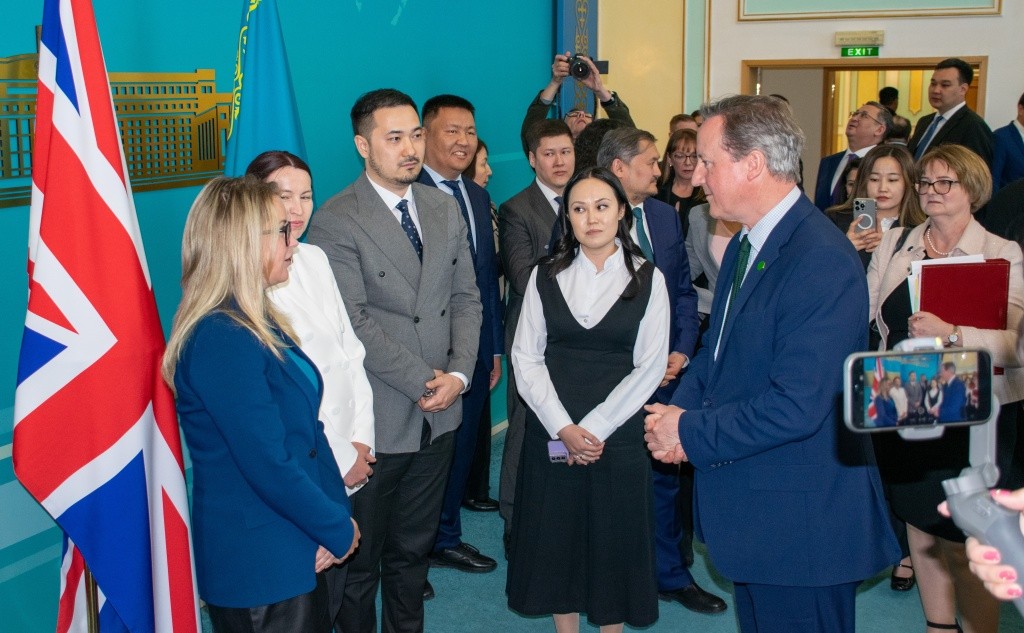On Sunday, 21 April in the center of Prague on Wenceslas Square, some 200 people attended a rally in memory of Saltanat Nukenova and in protest against violence against women. The event took place against the backdrop of the trial of former Kazakh minister, Kuandyk Bishimbayev, who is accused of torturing and murdering Saltanat Nukenova, with whom he was bound in a common-law marriage. In an interview with The Times of Central Asia, Aruzhan, one of the organizers, described the various problems encountered by the team, beginning with the hostile criticism expressed by many young hecklers with little or no knowledge of the situation. “We were bombarded with comments like, ‘Kazakhstan has enough problems;’ ‘Why didn't you come out for the floods?’, ‘Only one person died,’ and so on. It was both frustrating and unpleasant to see that side of our young people but I think, and hope, that the rally woke some of them up and changed their minds.There were also those in Saltanat Ushin's group who twice expressed their ‘valuable opinion’ and provoked quarrels between the participants." Image: Asel Kamiyeva Despite a statement issued by the Foreign Ministry of Kazakhstan that it was happy for its youth to speak out, there was a marked absence of support from the embassy. Aruzhan said it was disappointing, but nowhere near as bad as what happened in Tbilisi, where during a similar rally the Kazakh embassy had openly threatened and called in the organizers. Aruzhan explained that officials had accused the organizers of acting in defiance of the embassy, and, whilst logging their details, told them they should be ashamed and focus instead on other problems. She said that they been repeatedly told, "the law's already been passed, so calm down.” “In every city where a rally was held, the embassy behaved in this way, even after the Ministry of Foreign Affairs issued a statement claiming they supported our action and were happy for us to express our position." Aruzhan described an incident which illustrated that a close eye was being kept on proceedings: "Before the rally, a large car arrived on site. Intimidating-looking men leapt out, made a quick assessment of the number of people gathered, and drove off. They spoke in Russian and Kazakh." Image: Asel Kamiyeva Another challenge facing the organizers, was the lack of media support. "The groups to which I made initial announcements about the rally deleted my posts, explaining that they had 'cultural content that does not concern politics'. It was funny and sad to read this; funny that we are perceived not to touch politics, and sad that they are so shaken by it. In Istanbul, the embassy scared people so much that they gave up the idea of going to the rally. At our rally, we shot reportage that came out more like a social video. Not a single media outlet picked it up. I think that says a lot about how censorship works. So we turned to bloggers, Russian-speaking media...








